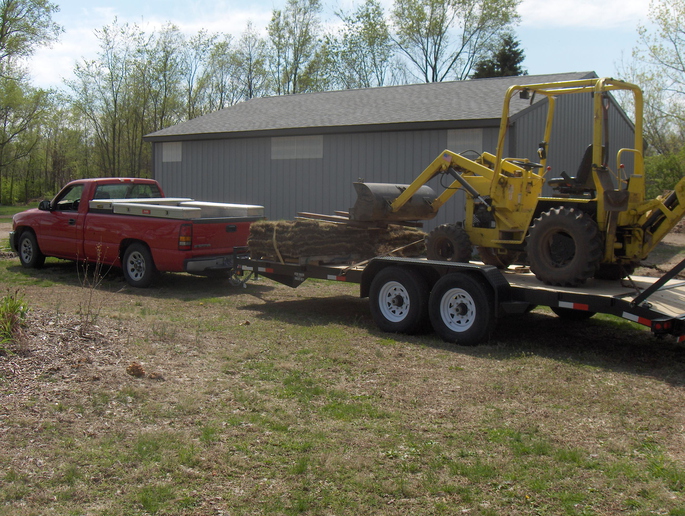Geo-TH,In
Well-known Member
Some one gave me the advice that I can't get too big of a trailer. So I bought a 14k implement trailer. Empty it feels like the truck is getting kicked in the butt. The trailer weighs around 3100 #. Very little tounge weight empty. So I loaded it with a small tractor, around 3100# and some sod, perhaps 2000+. Compressed the rear springs on my 1/2 ton 1 1/2 inches. This would give me a good ride with my old 7k trailer. The truck is very stable, however the trailer is still kicking the truck in the Butt!
The trailer is a new sure-trac. Open for any advice on how to keep it from feeling like I'm getting kicked. BTW, I'm NOT BUYING A BIGGER TRUCK!!!
Thanks, George

The trailer is a new sure-trac. Open for any advice on how to keep it from feeling like I'm getting kicked. BTW, I'm NOT BUYING A BIGGER TRUCK!!!
Thanks, George



